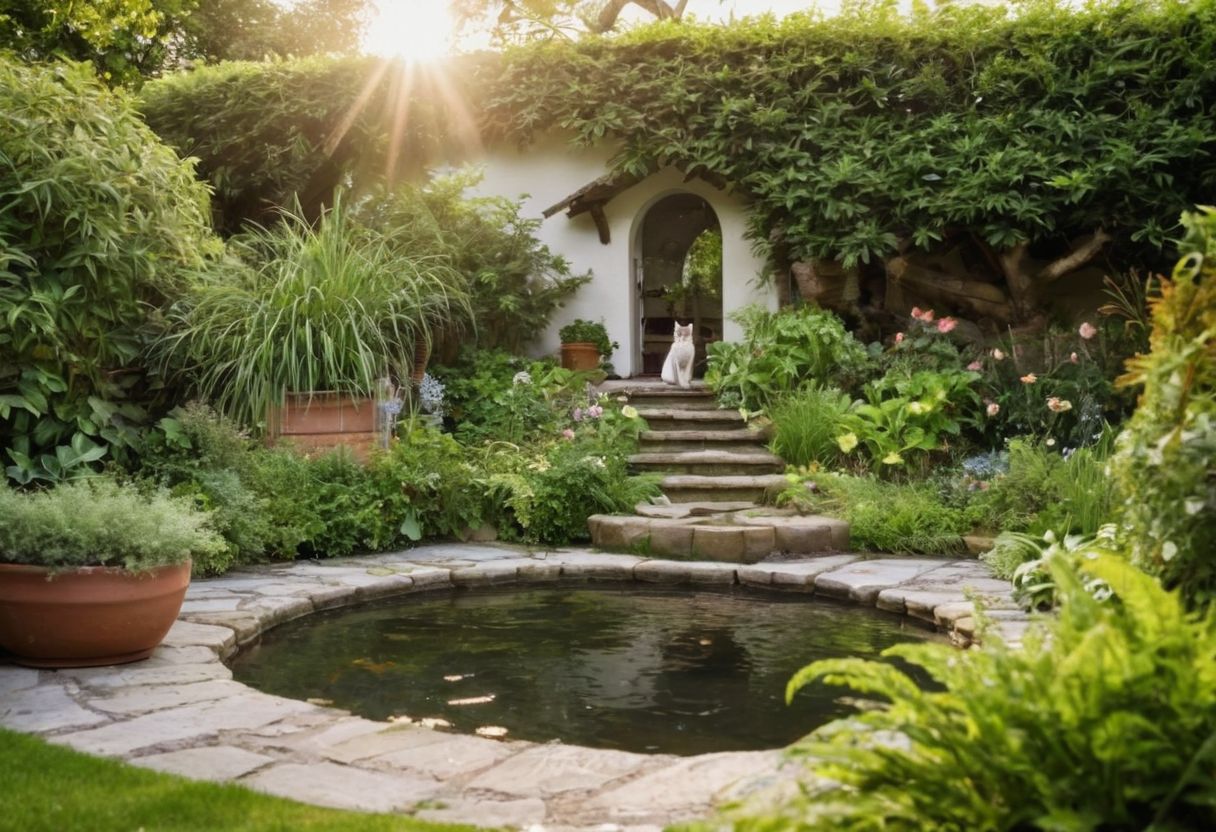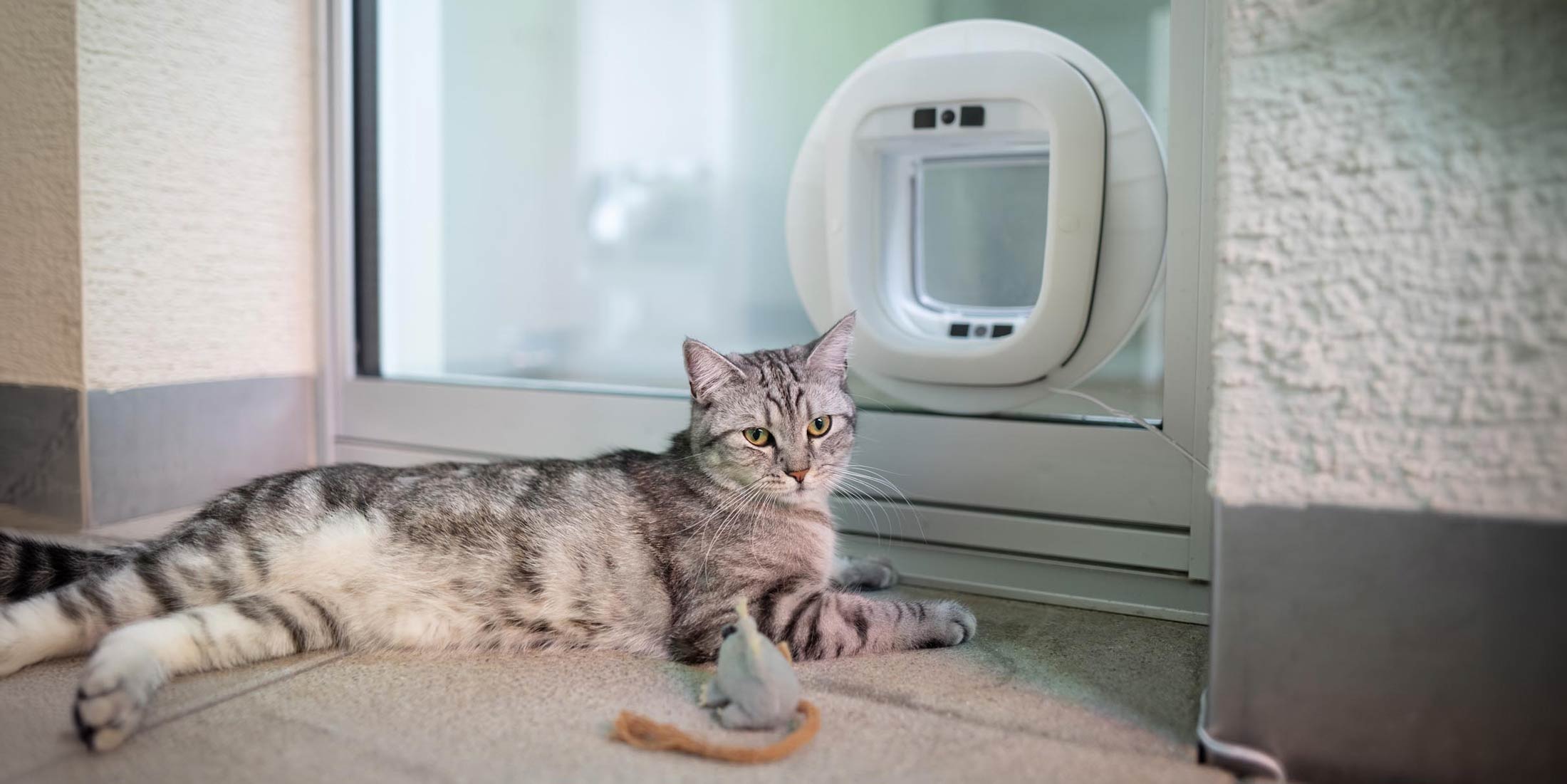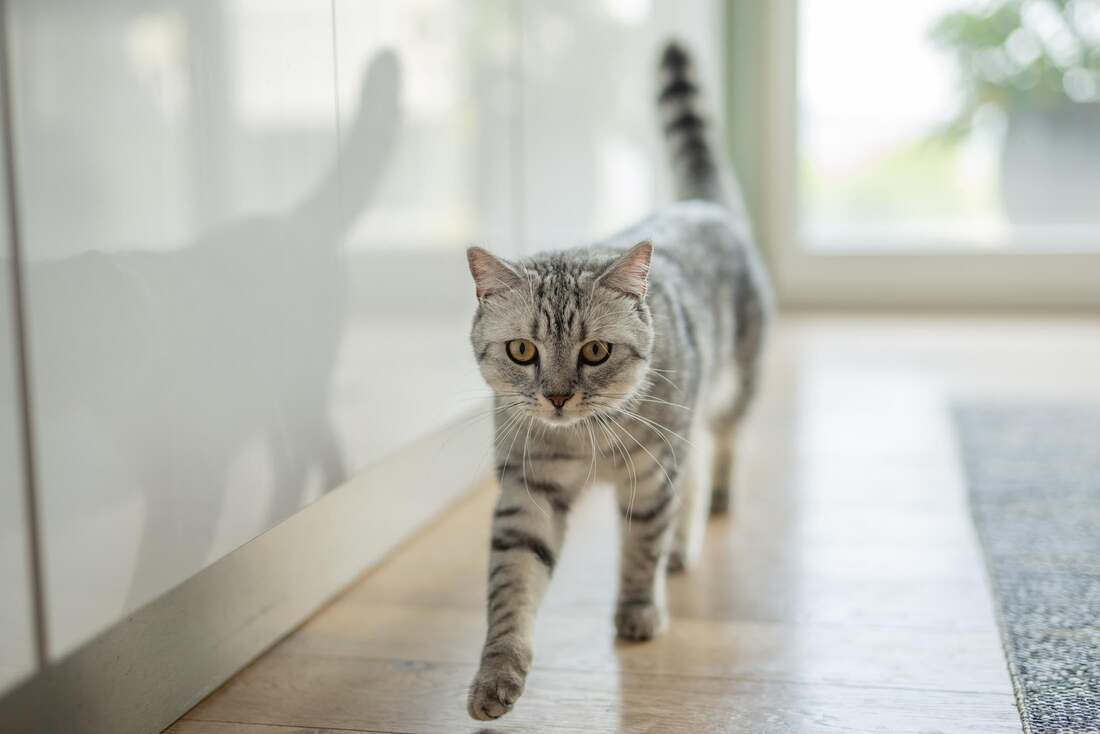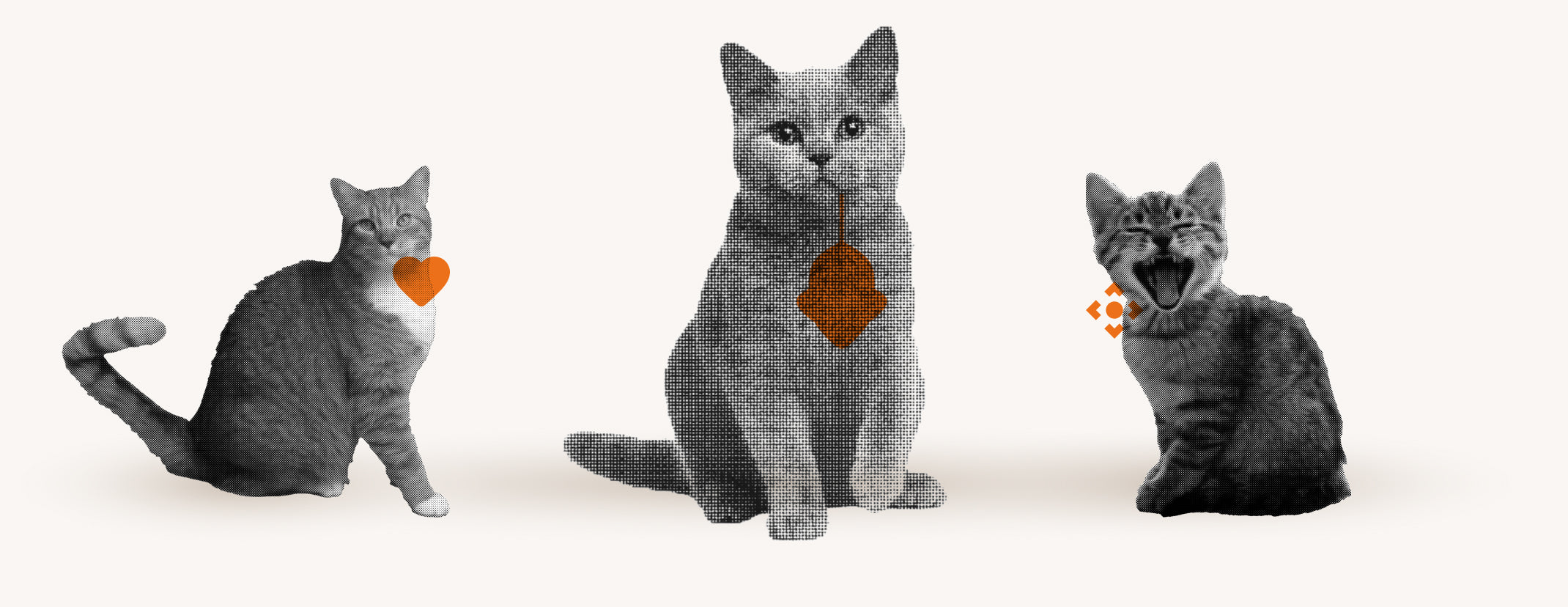Have you ever discovered unwanted cat droppings in your garden?
It can be really frustrating to encounter these unpleasant surprises while gardening.
An effective solution could be to set up a special litter box in the garden to offer cats an attractive and suitable place to do their business.
This article will tell you how to design a litter box in your garden, what legal aspects need to be considered, and what other strategies can help to avoid cat feces in your garden.
Legal aspects of cat litter boxes in the garden
If you have your own garden, you're probably familiar with the problem: cat feces in the garden. But what does the law say about it? Generally speaking, it's difficult to legally enforce a rule that cats should avoid your garden. The legal situation is often unclear, as cats are considered free-roaming animals and are difficult to control. Nevertheless, you're not entirely powerless. There are ways to at least hold the cat owner liable for damages.
If a cat regularly uses your garden as a toilet and causes damage, the cat owner can be held liable under certain circumstances. For example, if it can be proven that the damage was caused by that specific cat. In such cases, liability may exist for the removal of the feces or for damaged plants. It is therefore worthwhile to try to talk to the cat owner and hope for an amicable agreement.
Health risks from cat feces in the garden
Cat feces in your garden is not only unpleasant, but can also pose health risks. The parasite Toxoplasma gondii , which can be found in cat feces, is particularly dangerous. This pathogen is especially hazardous for pregnant women and people with weakened immune systems, as it can lead to serious illnesses. Therefore, it is important to remove cat feces quickly and thoroughly.
Besides Toxoplasma gondii , other diseases can also be transmitted through cat feces, such as:
- Gastrointestinal diseases
- Salmonella
- Giardia
- Cryptosporidiosis
- Worm diseases, especially roundworms
To protect yourself and your family, it is advisable to regularly remove cat feces from the garden and to wear gloves when gardening.
Home remedies for cat feces in the garden
Many garden owners are familiar with the problem: cats use the garden as a toilet. To prevent this, there are various home remedies that can naturally deter cats. For example, placing garlic cloves or spraying apple cider vinegar can help, as cats find these smells unpleasant. These methods are easy to use and offer a first line of defense against unwanted garden visitors.
Another effective method is to scatter spices like pepper or chili peppers in areas frequently visited by cats. These pungent substances are very unpleasant for cats and can deter them from revisiting these areas. However, caution should be exercised, as these spices can irritate cats' paws and lose their effectiveness in the rain.
Scents as a deterrent in the garden

To keep cats out of the garden, using scents can be an effective method. Cats have a very sensitive sense of smell, and certain scents are particularly off-putting to them. For example, coffee grounds or essential oils such as citrus oil, menthol, or lavender can help keep cats away from certain areas of the garden. These substances can simply be scattered on the ground or placed in flowerbeds.
Here are some specific scents that can serve as natural repellents against cats:
- Coffee grounds : Not only a good fertilizer, but also a smell that cats avoid.
- Garlic : Simply place chopped garlic cloves in the garden.
- Pepper : Sprinkle ground pepper into the areas that need protection.
- Bark mulch : The smell of bark mulch can also deter cats.
However, these products need to be reapplied regularly, especially after rain, to maintain their effectiveness.
Cat-repellent plants for the garden

To keep your garden cat-free, you can use certain plants that naturally repel cats. Plants like lavender (Lavandula angustifolia), lemon balm (Melissa officinalis), and rue (Ruta graveolens) are not only known for their beautiful flowers and fragrance, but also for being avoided by most cats. These plants emit strong scents that cats find unpleasant.
Besides these plants, there are others, such as peppermint (Mentha x piperita) and curry plant (Helichrysum italicum), that can effectively deter cats. These plants can be strategically placed in flowerbeds or along garden edges to create a natural barrier. The strongly scented plants are not only a practical but also an aesthetically pleasing solution for keeping your garden cat-free.
Adjust the floor surface to keep cats away

An effective way to keep cats out of your garden is to adjust the soil composition. Cats generally prefer fine, crumbly, and level soil for their litter box. By spreading coarse bark mulch or larger stones in your flowerbeds, you make the surface unattractive to cats. These materials are uncomfortable for their sensitive paws and reduce the likelihood of them using your garden as a toilet.
In addition to bark mulch and stones, you can also use other materials like cocoa shells or wood chips to make the soil less inviting to cats. These materials offer the added benefit of enriching the soil with nutrients as they decompose. By creating an unappealing soil surface in your beds, you not only help keep cats away but also promote the health of your plants.
Water strategies to keep cats out of the garden

Water is a simple and often effective way to keep cats out of your garden. Many cats dislike water, and a well-aimed jet can quickly deter them from entering your garden. You can use a garden hose or a water pistol, for example, to scare the cats when they try to enter your garden. However, this method requires you to be in the right place at the right time.
For an automated solution, there are motion-sensor-controlled sprinklers. These devices can be placed in strategic locations in the garden and activate a jet of water as soon as they detect movement. Here are some advantages of this method:
- Automatic activation : You don't need to be there yourself to scare the cats away.
- Targeted defense : You can precisely adjust the area you want to protect.
- Deterrence without harm : The water jet is harmless but effective in keeping cats away.
Access control for cats in the garden

To control cat access to your garden, you can erect various barriers. One option is to install a high fence, at least 2 meters high, to prevent cats from simply jumping over it. Make sure the fence doesn't have large gaps through which smaller cats could slip. A sloping top edge on the fence can also help make climbing more difficult.
Another effective method for access control is installing cat netting over your garden. This netting can be stretched over flowerbeds or small garden areas to prevent cats from entering. Here are some tips for using cat netting:
- Stability : Choose a net that is strong enough to withstand the weight of a cat.
- Coverage : Make sure the net is large enough to cover the entire area.
- Safety : Regularly check that the net is intact and has no tears or holes through which a cat could slip.
Discover Flappie's solution for a clean home
Have you ever wished your home remained free of unwanted "gifts" from your cat? Flappie offers an innovative solution with its smart cat flap, which provides the following advantages:
- Selective access control : The flap only opens if your cat comes home without prey.
- Prey detection : A state-of-the-art camera with AI technology detects whether your cat has something in its mouth.
The Flappie cat flap not only helps keep your home clean, but also contributes to the security of your garden. It prevents prey animals such as birds or mice from entering the house, which has the following advantages:
- Fewer pests and pathogens in your home and garden.
- Improved hygiene and order , as no unwanted animal remains are brought in.
Frequently Asked Questions
What can be done about cats having a litter box in the garden?
To solve the problem of cat feces in your garden, you can employ various strategies. One option is to set up a designated litter box to provide cats with an attractive place to relieve themselves. Additionally, you can use home remedies such as garlic cloves, apple cider vinegar, pepper, or chili peppers to deter cats. Laying out specific scents that cats find unpleasant, such as coffee grounds or essential oils, can also be helpful. Furthermore, cat-repellent plants and modifying the soil composition with materials like bark mulch or larger stones can be effective. Water management strategies and access controls such as high fences or cat netting offer further ways to keep cats out of your garden.
Who is liable for cat feces in a neighbor's garden?
If a cat regularly uses a garden as a toilet and causes damage, the cat owner can be held liable under certain circumstances. This is especially true if it can be proven that the damage was caused by that specific cat. In such cases, liability may exist for the removal of the feces or for damaged plants. It is recommended to try to reach an amicable agreement with the cat owner.





Share:
Litter box on the balcony: everything you need to know
Everything about cat litter: tips and tricks